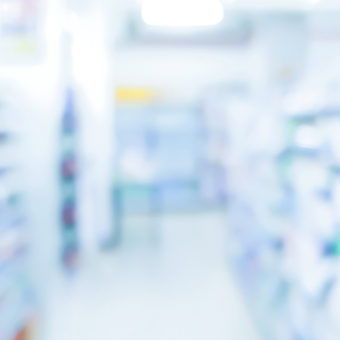

Ushering in a new year often leads many of us to make resolutions, the most popular of which tend to relate to our health: lose weight, exercise more, drink more water. If you find yourself making the same resolutions year after year, make 2022 the year that you focus on different health-related goals: safe handling, storage, and disposal of your household medicines. Keep reading for four easy resolutions you can make this year to adhere to your prescriptions, get your medicine cabinet organized, and ensure your medicines are properly stored (and when it’s time, disposed of).
The primary reason that adherence (taking your medicine as prescribed by your doctor) is important is simple: poor adherence may prevent illnesses from being properly treated or managed, potentially leading to additional complications or worsening conditions. If you haven’t been filling your prescriptions on time, have stopped taking a medicine prematurely without consulting your doctor, or have been skipping doses: make adherence one of your resolutions for 2022.
For helpful information that can help you to take your medicines as directed, check out our article: “Adherence is Key: Tips for Taking your Medicine as Prescribed.”
Check the expiration dates and if any medicine is expired, it should be disposed of. If you aren’t reviewing the contents of your medicine cabinet (or another secure location where you choose to store your household medicines) at least annually, make it a resolution to do so this month! The beginning of the year is an excellent time for a fresh start – and a freshly purged medicine cabinet.
For a step-by-step guide on cleaning out that medicine cabinet, check out our article: “Time to Spring Clean your Medicine Cabinet.”
Before selecting a storage spot, it’s important to remember that any medicine could be harmful if taken by the wrong person or in the wrong way. Securely storing your medicines can help to protect your family, pets, and anyone else in your home that may inadvertently come into contact with them.
If you have kids at home, pick a storage place that they won’t be able to see or reach. Some examples may be in a kitchen cabinet (as long as it’s up high enough that it can’t be accessed) or possibly a shelf in your closet or linen cabinet. You may also want to consider a secure storage device (small, personal lock-boxes can be purchased online or at your local hardware or sporting goods stores) for additional protection.
If others can easily access your current storage location, make secure storage a resolution this year and check out our article: “Household Medication Storage: Is Your Medicine Cabinet Always the Best Choice?” for tips on determining the best storage location in your home.
Proper management and disposal of medicines from households is critical, as it may help to combat drug abuse, drug diversion, and accidental ingestion and poisoning. Make it a resolution this year to learn how and where to dispose of your medicines and help keep yourself, your family, and your community safe.
The best disposal option for you may depend on your location. Kiosk disposal sites are available in all 50 states and are safe, anonymous, and available year-round. Kiosk locations in your community may vary, but most tend to be located in pharmacies or law enforcement agencies. Before visiting a kiosk, be sure to remove personal information from the items you plan to dispose of and use the phone number listed in our Locator tool to confirm any collection restrictions and current hours of operation. For more details on preparing to visit a kiosk location for disposal, read our article on “Three Steps to Take Before Visiting a Kiosk Site.”
If you have medicines to dispose of and it happens to be April or October, the DEA’s biannual National Prescription Drug Take-Back Days are nationwide, free, and convenient opportunities for safe disposal. The DEA hosts and oversees these events at pharmacies, health clinics, and law enforcement facilities to encourage safe and anonymous drug disposal in communities across the country. If you’re planning to visit a take-back event this year, check out our article “Preparing for the DEA’s National Prescription Drug Take-Back Day“ for tips on preparing and what to expect once you arrive.
Finally, if you can’t make it to a kiosk or event, there are steps that you can take to safely dispose of most medicines at home. While there are options available for in-home disposal, you must first check that any of these options you consider complies with your local requirements. It is essential that you must never simply throw an unused product directly into your household trash, toilet, or sink without first checking and following local requirements. Our article on “The Do’s and Don’ts of In-Home Disposal” can help you to take the proper precautions before disposing of medicine at home.

What to do with Medicines You Don't Use ~ You probably don’t think about your expired or unwanted household medicines…
Read More
Key steps to take before you flush ~ Should you flush your unwanted, unused, or expired medicines? The short answer: in…
Read More
The OTC Drug Facts Label ~ What do your aspirin, cough syrup, and seasonal allergy treatments have in common? They…
Read More
MyOldMeds.com Map to the Rescue! ~ Unwanted, unused, or expired medicines must be properly disposed of to help keep our…
Read More